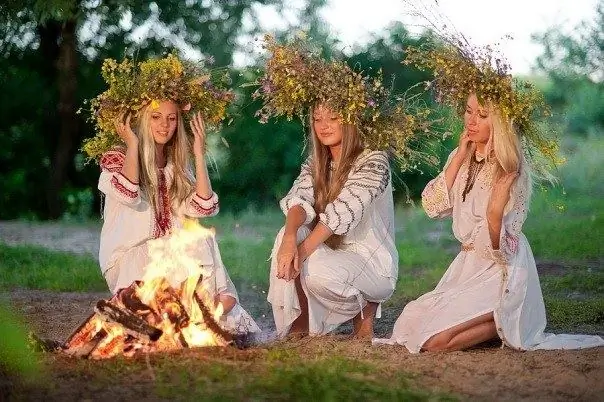- Author Antonio Harrison harrison@cultureoeuvre.com.
- Public 2023-12-16 07:44.
- Last modified 2025-01-22 21:44.
Any people strives to preserve the traditions of their ancestors. This is the basis for the further spiritual development of the nation. In modern society, it becomes difficult to observe traditions that have been passed down from generation to generation.

Is it necessary to observe the traditions of ancestors
For hundreds of years, the Russian people have accumulated invaluable experience, which found its expression in traditions, beliefs, rituals. The change of the pagan religion to the Christian one influenced the worldview of the Slavs. However, paganism and Orthodoxy over time harmoniously merged, forming the most important layer of Russian culture. Some traditions have transformed, while retaining the Proto-Slavic basis. Compliance with the traditions of ancestors is a prerequisite for procreation and spiritual development. Most of the moral categories of Russians are fueled by the centuries-old experience of the Russian people.
Pagan traditions of the Russian people
Pagan beliefs are considered the most ancient and stable for the Slavs. Mainly calendar rituals associated with the celebration of the surviving pagan holidays have survived to this day. For example, the burning of an effigy of Maslenitsa, caroling, weaving wreaths on Ivan Kupala, wedding customs, etc. They appeared thanks to the agricultural cycle of the ancient Slavs. Compliance with holiday customs and rituals allows you to strengthen family ties and pass on unique knowledge to the future generation.
Each clan had its own sacred animal, which protected the tribe from evil spirits. The mythological image of the bear has survived to this day, which has become one of the symbols of Russia. The bear in Slavic mythology was considered a protector from evil forces and the patron saint of the family. Therefore, many peasants had a talisman-talisman made from a bear's paw at home. The horse was also a revered animal, since most peoples led a nomadic lifestyle. The horse was a sacred animal, and the presence of a horseshoe at home is still associated in the minds of Russians with a powerful protective effect. The brownie deserves special attention. This is the main guard of the house and its owner. The brownie had to be appeased by any means, since an angry brownie could leave the house. Our ancestors did not think of maintaining harmony in the family without a brownie.
Christian traditions of the Russian people
Christianity laid the foundations for the spiritual development of the Slavs. It may seem that Russians today do not observe all Orthodox traditions. However, everything depends on the conscious choice of the person. Christian traditions are associated primarily with the moral categories of goodness, justice, forgiveness, gratitude. These are the very commandments that Jesus bequeathed to mankind. Believers try to observe them in the harsh modern conditions. In festive rituals, Christian and pagan traditions are closely intertwined with each other, so it is difficult for a modern person to separate one from the other. One way or another, observance of the traditions of ancestors is an important component of the inner state of a person. Thus, an invisible but very powerful connection between generations is created.






